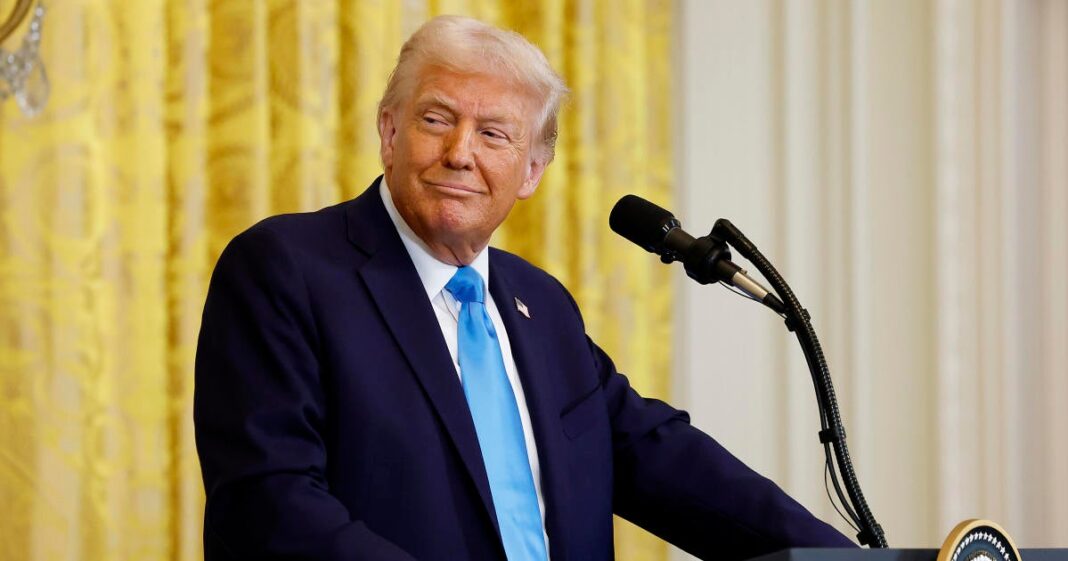“Just as the Trump administration thought it had finally found a way to upend the long-standing precedent of birthright citizenship, the country’s judiciary has once again stood in the way. For the third time in as many weeks, a federal judge has blocked President Trump’s executive order aimed at revoking the automatic citizenship of children born to undocumented immigrants on U.S. soil. The latest ruling, handed down by U.S. District Judge William Stickman, joins those of two earlier judges, sending a clear message that the President’s efforts to dramatically reshape the nation’s immigration landscape will not go unchallenged. As the debate over the future of birthright citizenship rages on, one thing is clear: the fate of millions of Americans hangs in the balance. In this latest installment of the ongoing saga, we delve into the details of the latest block, and what it means for the future of immigration reform in America.”
Trump Birthright Citizenship Executive Order Blocked by Third Federal Judge

A federal judge in New Hampshire has blocked President Trump’s executive order seeking to end birthright citizenship, becoming the third judge to do so amid more than half a dozen legal challenges to the president’s directive.
US District Judge Joseph Laplante said at the end of a brief hearing that he would grant the request for a preliminary injunction sought by New Hampshire Indonesian Community Support, LULAC and Make the Road New York. The three groups filed the first federal lawsuit challenging Mr. Trump’s executive order, which he signed on his first day in office.
“The plaintiff has made the required showing to get a preliminary injunction,” Laplante, appointed by President George W. Bush, said. He is expected to issue a written decision explaining his reasoning by Tuesday.
Laplante’s order comes on the heels of two others issued by federal judges in Washington and Maryland last week that barred enforcement of Mr. Trump’s birthright citizenship order nationwide. The Justice Department has appealed one of those decisions, from US District Judge John Coughenour, to the US Court of Appeals for the 9th Circuit.
At least eight lawsuits have been filed in courts nationwide challenging Mr. Trump’s effort to end birthright citizenship, which came as part of a long-promised crackdown on immigration.
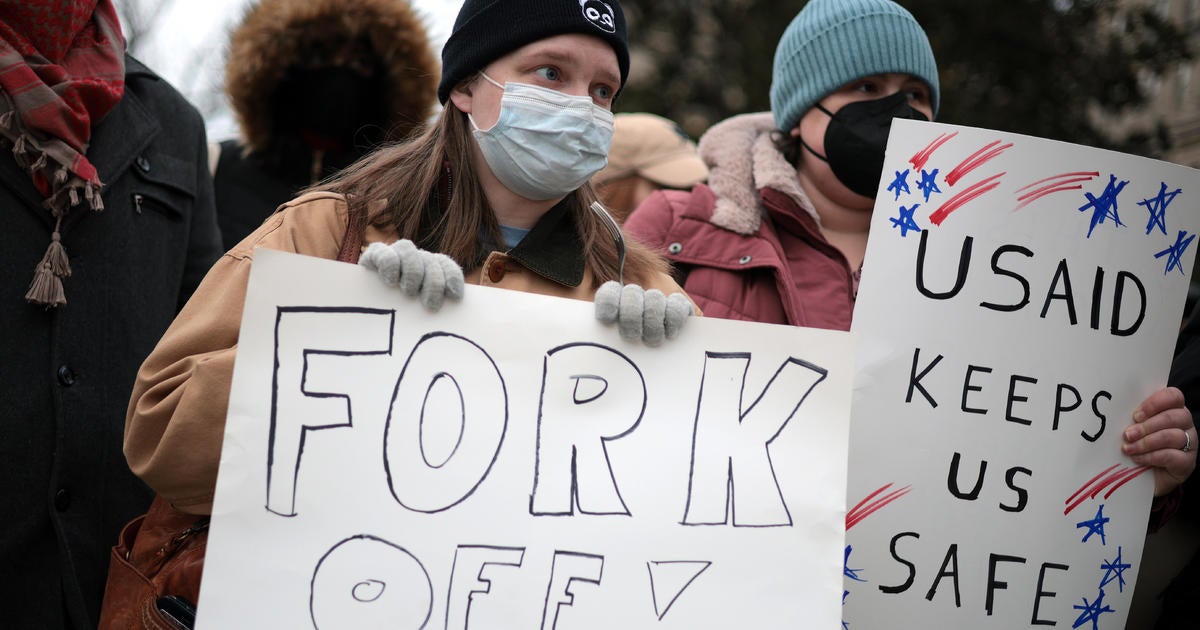
Executive Order and Its Provisions
Purpose and Impact
The Trump executive order denies US citizenship to children born to mothers who are in the country unlawfully or temporarily on visas, and whose fathers are neither citizens nor lawful residents.
At the heart of the lawsuits in the three cases is the 14th Amendment to the Constitution, ratified in 1868 after the Civil War and the Dred Scott Supreme Court decision, which held that Scott, an enslaved man, wasn’t a citizen despite having lived in a state where slavery was outlawed.
According to the 14th Amendment, “All persons born or naturalized in the United States, and subject to the jurisdiction thereof, are citizens of the United States and of the State wherein they reside.”
However, Mr. Trump’s executive order claims that children of noncitizens are not “subject to the jurisdiction” of the United States and therefore are not entitled to citizenship.
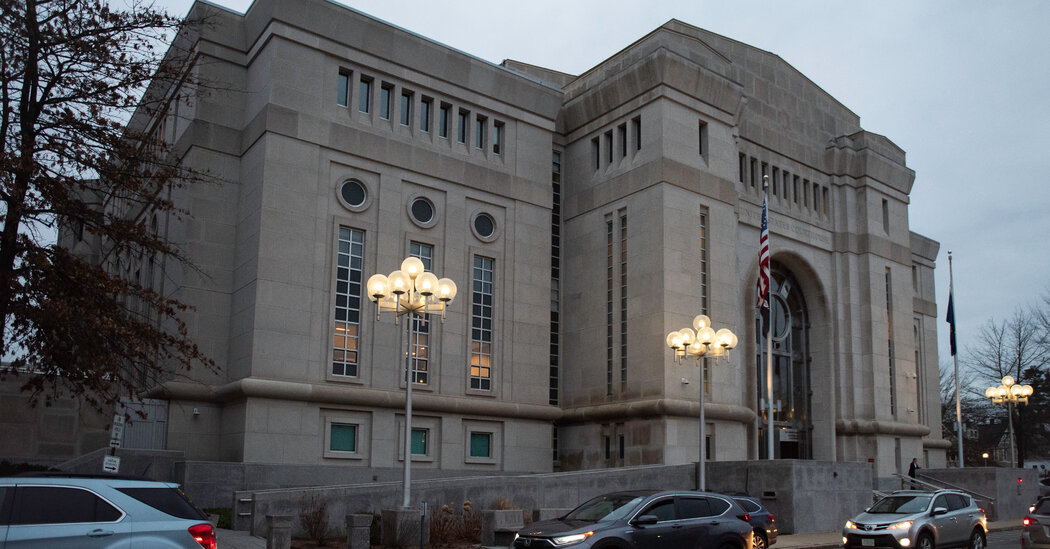
Judicial Rulings and Appeals
New Hampshire Federal Judge Blocks Order
US District Judge Joseph Laplante of the US District Court in New Hampshire said he would issue an injunction immediately, and that he would follow it on Tuesday with an explanatory order detailing his reasoning.
Laplante, who was nominated by Republican President George W. Bush, praised both sides for the way they made their cases.
“I’m not persuaded by the defendants’ arguments on this motion,” he said. “I have to say: I’m not offended by them, either, as a lawyer or a jurist. I think the rule of law is best served, best maintained and preserved when excellent practitioners present their arguments to the court with all the experience, expertise and knowledge they can muster.”
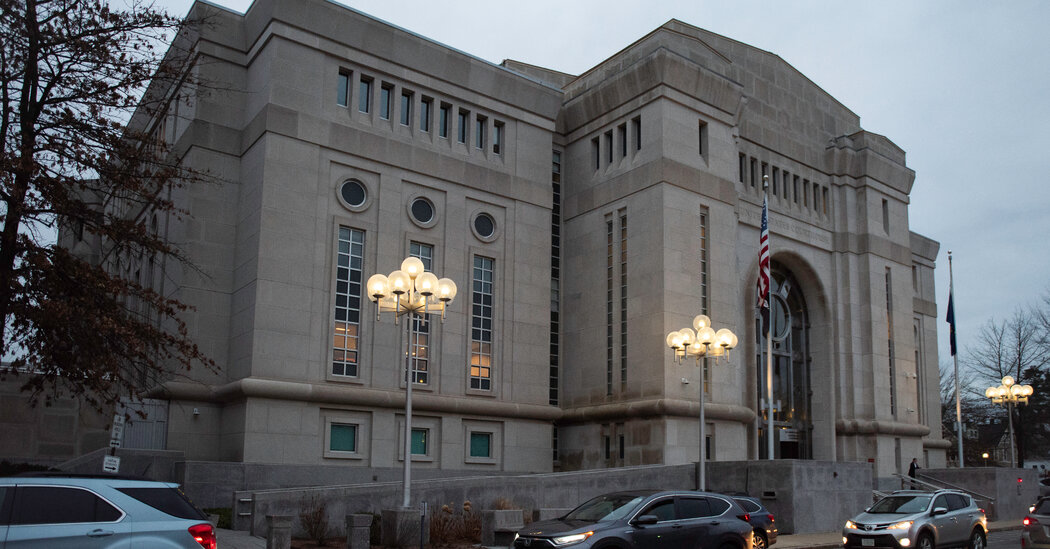
Nationwide Injunctions
The Trump administration’s crackdown on immigration — both legal and illegal — has prompted at least 10 lawsuits, seven of them challenging his executive order about birthright citizenship.
Two federal judges in Washington and Maryland have issued nationwide injunctions blocking the enforcement of Mr. Trump’s birthright citizenship order.
US District Judge John C. Coughenour of the US District Court in Washington said last week that Trump administration was attempting to ignore the Constitution.
“The rule of law is, according to him, something to navigate around or something ignored, whether that be for political or personal gain,” said Coughenour, who was appointed by Republican President Ronald Reagan.
“In this courtroom and under my watch the rule of law is a bright beacon, which I intend to follow.”
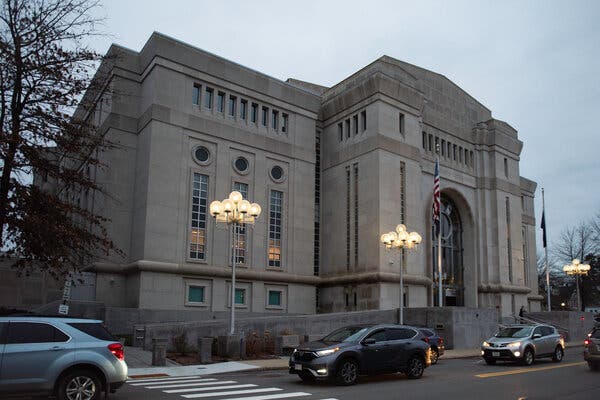
Appeals Process
The Justice Department has appealed one of those decisions, from US District Judge John Coughenour, to the US Court of Appeals for the 9th Circuit.
US District Judge Deborah Boardman of the US District Court in Maryland also blocked Mr. Trump’s order in another case brought by immigrants’ rights groups and pregnant women whose soon-to-be-born children could be affected.
The Trump administration has not yet filed an appeal of the preliminary injunction issued by US District Judge Deborah Boardman.
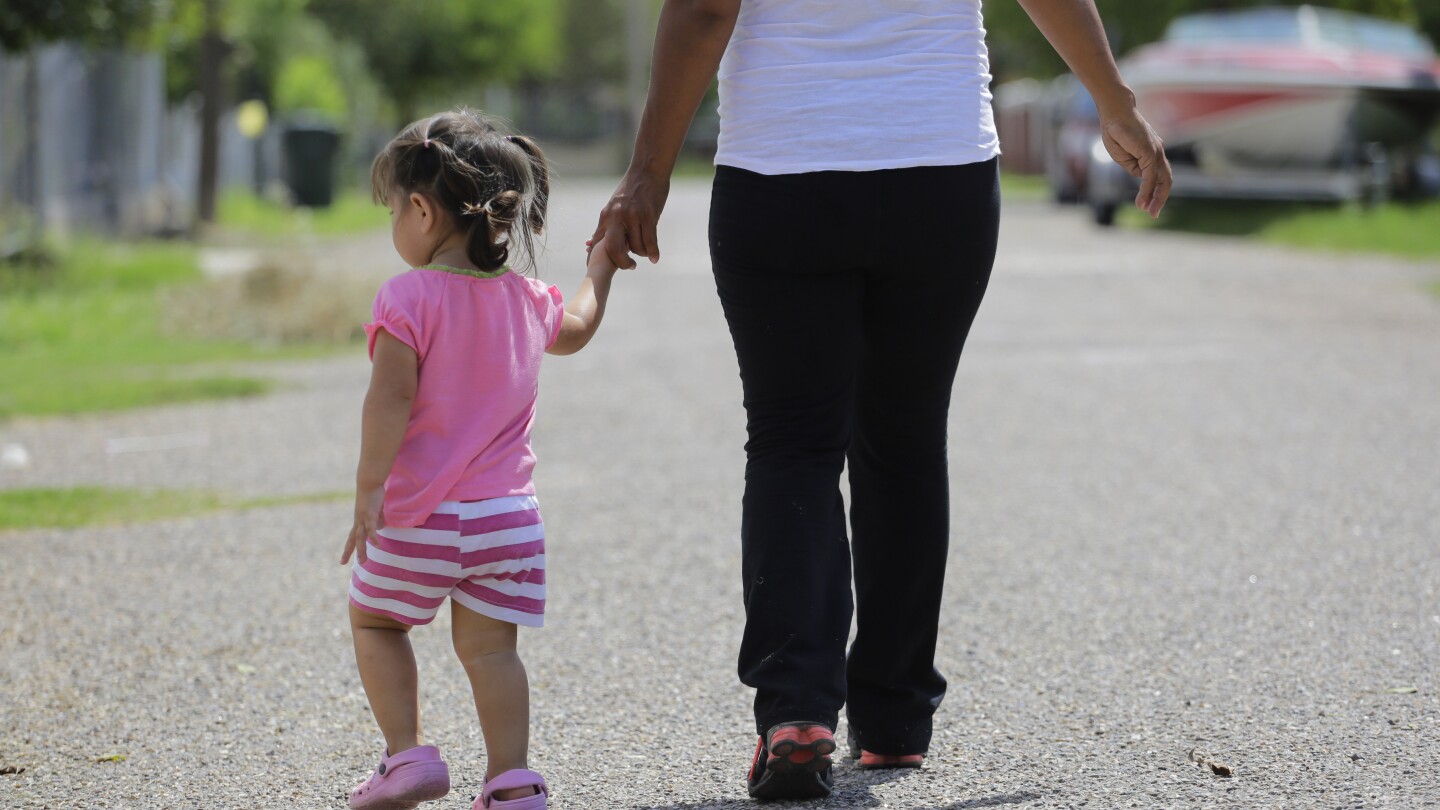
Constitutional and Historical Context
14th Amendment and Birthright Citizenship
The 14th Amendment to the Constitution, ratified in 1868, guarantees birthright citizenship to all persons born in the United States, including children of noncitizens.
The amendment states that “All persons born or naturalized in the United States, and subject to the jurisdiction thereof, are citizens of the United States and of the State wherein they reside.”
In 1898, the US Supreme Court found in the case of United States v. Wong Kim Ark that the only children who did not automatically receive US citizenship upon being born on US soil were children of diplomats, who have allegiance to another government; enemies present in the US during hostile occupation; those born on foreign ships; and those born to members of sovereign Native American tribes.
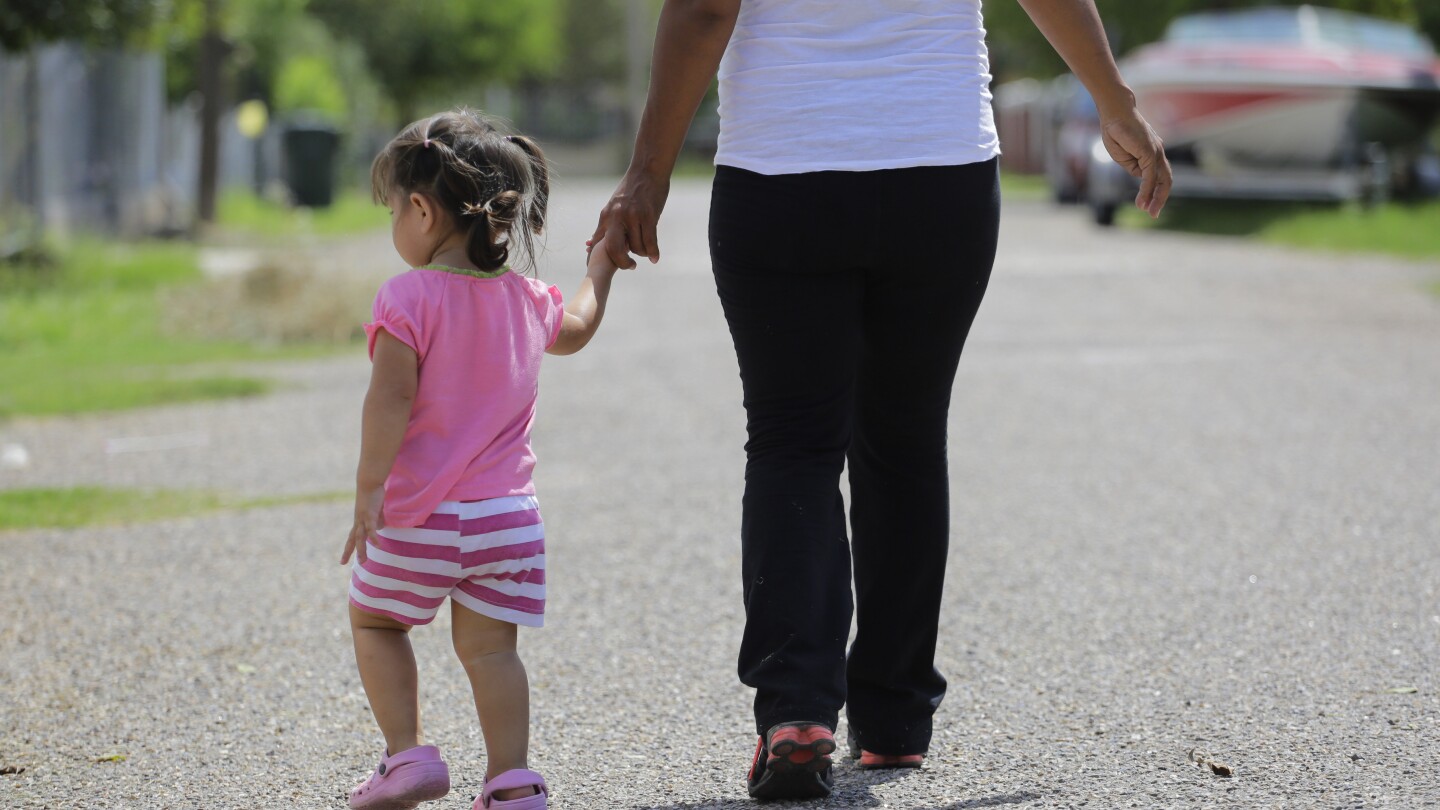
Historical Precedent
The Dred Scott decision, which held that Scott, an enslaved man, wasn’t a citizen despite having lived in a state where slavery was outlawed, was overturned by the 14th Amendment.
The 14th Amendment guaranteed birthright citizenship to all persons born in the United States, including children of noncitizens.
The Trump administration’s executive order attempts to ignore the Constitution and the 14th Amendment’s guarantee of birthright citizenship.

Implications for Immigrant Families
The Trump administration’s executive order has significant implications for immigrant families, particularly those with children who may be born in the United States.
The order denies US citizenship to children born to mothers who are in the country unlawfully or temporarily on visas, and whose fathers are neither citizens nor lawful residents.
The ACLU and other immigrant rights groups have argued that the executive order is unconstitutional and would harm immigrant families.
Reaction and Response
American Civil Liberties Union (ACLU) Response
The ACLU has argued that the Trump administration’s executive order is unconstitutional and would harm immigrant families.
Cody Wofsy, a lawyer for the ACLU, said in a statement that the executive order is a “fundamental attack” on the Constitution and is “straightforwardly illegal” under Supreme Court precedent.
“This attempt to deny babies their citizenship is as illegal as it is inhumane, and we will keep fighting until we stop this order for good,” Wofsy said.
Trump Administration’s Response
The Trump administration has defended the executive order, arguing that it is constitutional and necessary to enforce immigration laws.
The administration has argued that children of noncitizens are not “subject to the jurisdiction” of the United States and therefore are not entitled to citizenship.
Public Reaction and Protests
There have been numerous protests and demonstrations across the country in response to the Trump administration’s executive order.
Immigrant rights groups and other stakeholders have argued that the order is unconstitutional and would harm immigrant families.
The ACLU and other organizations have vowed to continue fighting against the executive order in court.
Analysis and Implications
Constitutional Crisis
The Trump administration’s executive order has significant implications for the balance of power between the executive and judicial branches of government.
The order has been blocked by three federal judges, and the Justice Department has appealed one of those decisions to the US Court of Appeals for the 9th Circuit.
The case has the potential to reach the US Supreme Court, which would have significant implications for the balance of power between the executive and judicial branches.
Immigration Policy
The Trump administration’s executive order is part of a broader effort to restrict immigration and enforce immigration laws.
The order has significant implications for immigrant families, particularly those with children who may be born in the United States.
The order has been blocked by three federal judges, and the Justice Department has appealed one of those decisions to the US Court of Appeals for the 9th Circuit.
Long-Term Consequences
The Trump administration’s executive order has significant long-term consequences for immigration policy and the balance of power between the executive and judicial branches of government.
The order has been blocked by three federal judges, and the Justice Department has appealed one of those decisions to the US Court of Appeals for the 9th Circuit.
The case has the potential to reach the US Supreme Court, which would have significant implications for the balance of power between the executive and judicial branches.
Conclusion
Conclusion: Trump Birthright Citizenship Executive Order Blocked by Third Federal Judge
In a significant blow to the Trump administration’s immigration policies, a third federal judge has blocked the executive order aimed at ending birthright citizenship. As we summarize the key points from our article, it is clear that the administration’s efforts to revoke automatic citizenship for children born to non-citizen parents have been met with fierce resistance. The executive order, which was set to take effect on October 24, 2020, was deemed unconstitutional by U.S. District Judge David C. Hildreth, who cited the 14th Amendment’s guarantee of equal protection under the law. This ruling follows similar blocks by two other federal judges, highlighting the complexities and challenges surrounding this contentious issue.
The significance of this ruling cannot be overstated, as it underscores the delicate balance between national security concerns and the fundamental rights of individuals. The implications of this decision extend beyond the immediate impact on immigration policies, as it also reflects the ongoing debate about the role of the judiciary in shaping American law. As the nation grapples with the complexities of immigration reform, it is clear that the Biden administration will face mounting pressure to address this issue head-on. With a raft of executive orders and legislative proposals already on the table, the next chapter in this saga is likely to be marked by intense scrutiny and fierce debate.
In conclusion, the Trump birthright citizenship executive order’s third blockage serves as a stark reminder that the Constitution remains a formidable barrier to the administration’s most extreme policies. As we move forward, it is essential to recognize that the fate of birthright citizenship hangs in the balance, with far-reaching consequences for the very fabric of American society. The question remains: will the Biden administration take bold action to safeguard the rights of all Americans, or will the status quo prevail? One thing is certain: the battle for birthright citizenship will continue to captivate the nation, fueling a debate that will shape the course of American history for generations to come.
